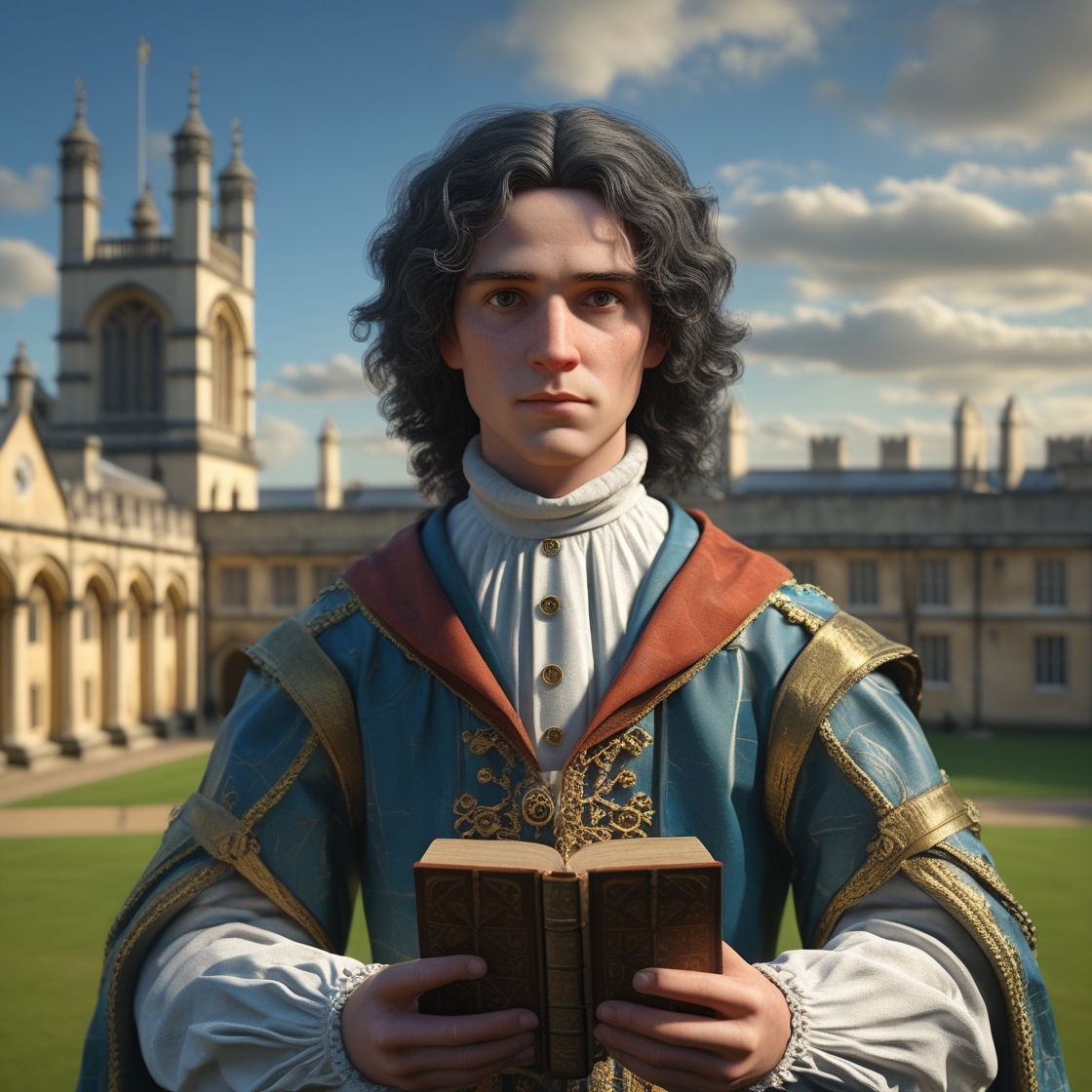Nicholas Whitely: In the footsteps of a giant

RENAISSANCE WEEKLY:
Master Whitely, you've been at John Dee's side through some rather extraordinary adventures. How does a young scholar find himself involved in court conspiracies and treasure hunts?
NICHOLAS: [grins ruefully, setting down a brass astrolabe he'd been adjusting]
Curiosity, mostly. And perhaps a touch of youthful foolishness.
[grows more serious]
When I first began studying with Master Dee, I thought mathematics was about pure knowledge - elegant proofs, celestial calculations, theoretical beauty. I never imagined it would lead to cave explosions and Spanish gold. [Chuckles] Though I must admit, the practical applications have been... educational.
RW: You've been poisoned, beaten, and nearly drowned in pursuit of these investigations. Do you ever question whether scholarship is worth such risks?
NICHOLAS:
Every time someone tries to kill me, yes. [Laughs]
But then I think about what we've accomplished - preventing coups, exposing traitors, saving England's economy. How many scholars can say their work has had such immediate impact?
[his expression grows thoughtful]
Besides, someone needs to watch Master Dee's back. He's brilliant, but he has a tendency to charge into danger assuming his intellect will protect him.
RW: Speaking of Master Dee, you've developed quite a partnership. How would you describe your working relationship?
NICHOLAS: [his face lights up with genuine affection]
John - Master Dee - is the finest mind I've ever encountered. But he's also remarkably generous with his knowledge. Many masters guard their secrets jealously. He encourages me to think independently, to challenge his methods, to develop my own approaches.
[Pauses]
He's taught me that mathematics isn't just about solving problems, but about asking the right questions. And lately, those questions seem to involve matters of life and death.
RW: You've mastered Kopernik's astrological techniques alongside your mentor. Do you believe in the power of the stars to predict human affairs?
NICHOLAS: [considers this carefully]
I believe in patterns. The movements of celestial bodies follow mathematical laws - that's demonstrable. Whether those movements influence earthly events...
[Shrugs]
I've seen our predictions prove remarkably accurate. But I'm not sure if that's because the stars truly shape destiny, or because understanding patterns helps us recognise what others miss.
[Grins]
Master Dee says the distinction matters less than the results.
RW: What about your own future? Do you plan to remain at Master Dee's side indefinitely?
NICHOLAS: [his expression grows more complex]
That's... complicated. I've learned more in two years with John than I might have in a decade of traditional study. But I'm beginning to develop my own theories, my own approaches to the mathematical arts.
There's also the matter of patronage. Master Dee has the Lord Protector's favour, but I need to establish my own reputation if I'm to secure a position worthy of my abilities.
RW: Are you suggesting you might strike out on your own?
NICHOLAS: [quickly]
Not abandon John - never that. But perhaps... parallel paths? I've been corresponding with scholars in Paris, in Vienna. There are opportunities for a young mathematician with practical experience in... unusual applications.
[voice drops]
And frankly, after what happened to Captain Mercer and the others, I sometimes wonder if this life of investigation and intrigue has too high a cost. There's something to be said for quiet scholarship.
RW: Yet you continue to aid Master Dee in his work.
NICHOLAS:
Of course. Loyalty matters. And despite the dangers, we're making genuine discoveries - not just in mathematics, but in statecraft, in understanding how power really works.
[his eyes gleam]
How many scholars get to solve puzzles that shape kingdoms? Besides, [grins boyishly] through John's adventures I meet lots of interesting people - who knows when I'll find a girl who could be my soulmate?
RW: Any regrets about the path your studies have taken?
NICHOLAS: [long pause]
I regret the deaths - Conner, Sanders, Captain Mercer. Good men who died because of other men's greed and ambition.
[voice hardens slightly]
But I don't regret exposing Thomas Seymour's treachery, or helping recover that gold. Mathematics should serve truth, and truth should serve justice. If my calculations can prevent suffering or protect the innocent... [Straightens] then perhaps this is exactly what scholarship should be.
As our interview concluded, Nicholas returned to his work on what appeared to be an improved version of Kopernik's planetary calculator. When asked about its purpose, he merely smiled and mentioned "future applications." Whether those applications will continue to involve matters of state or return to purely academic pursuits remains to be seen, though we suspect this young scholar's adventures are far from over.
Nicholas Whitely spoke with Renaissance Weekly at the Kingston workshop he shares with John Dee, in the winter of 1549, where he continues to advance the mathematical arts while keeping a watchful eye on his mentor's increasingly dangerous investigations.